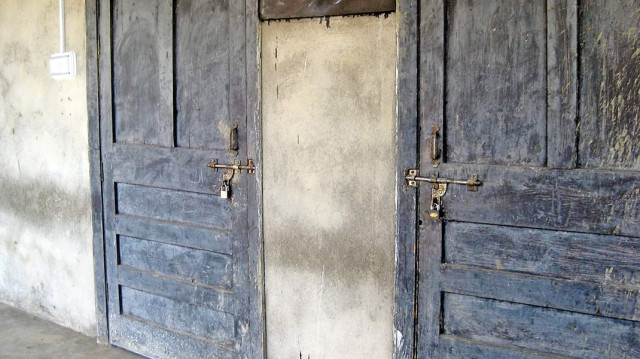In pursuit of education: Swat village devoid of a single fully functional school
Residents claim they are forced to travel to neighbouring villages to attend school.

Locals claim half of the schools in the village are shutdown whereas the other half are rarely frequented by teachers. PHOTO: EXPRESS
The village of Jalo is around 25 kilometres from Mingora, the district headquarters of Swat. The village features scenic waterfalls, snowcapped mountains and lush green valleys, but all of its schools either lack staff or adequate facilities.
Jalo, together with Kas and Shangri villages, has an approximate population of 30,000 people, most of whom resort to farming as a means of earning owing to the precarious and non-existent road links with surrounding areas.
It is for the same reason that government-appointed teachers manage to visit the area’s schools barely once a week. Aitizaz and his friends are thus forced to go to school in the neighbouring village. “We have no other choice as we want to go to school,” he says.
During a survey of the village’s schools carried out by this correspondent, the closure of almost all the schools was corroborated. Most schools were locked and locals explained that teachers sometimes make a cursory visit. A local, Fida Hussain, said it has been more than a decade since the schools were fully functional. He said he voted for the Pakistan Tehreek-e-Insaf and hopes the party can live up to its promise of ‘change’.
Fida said Jalo has 20 schools in total of which nine are completely shut down whereas the rest barely have enough teaching staff to cater to students, adding that is why locals are forced to travel long distances to the surrounding schools.
Another resident, Ali Khan said the root of the problem lies in the failure of locals to qualify as teachers owing to their poor education which forces the government to appoint teachers from urban areas in these schools. He said those teachers refuse to travel through the long and perilous routes every day and thus fuel the cycle of ignorance in the village.
When contacted, the executive district officer (EDO) for education denied the closure of schools or the absence of teachers and said not a single school is closed in the area, except for maybe some educational institutes for girls.
The EDO said the problem is that most schools in the area are far-off and those built on a political basis have been closed down, adding that the ones that are open are not short of teachers.
District Coordination Officer Syed Imtiaz Gilani, however, acknowledged the closure of schools and said he would make it a priority to reopen them as soon as possible so locals do not have to traverse long distances for the pursuit of education.
However, Jalo residents take the officials’ claims with a pinch of salt and allege employees of the education department are not interested in improving the state of education in the region. Young Aitizaz knows this and says he has no qualms in continuing the long walk to school every day.
Published in The Express Tribune, April 4th, 2014.













COMMENTS
Comments are moderated and generally will be posted if they are on-topic and not abusive.
For more information, please see our Comments FAQ